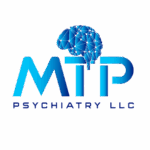My Philosophy
I seek nurse practitioners passionate about delivering top-tier mental healthcare to patients through a collaborative relationship with a provider. With extensive experience across various settings, including private practice, consulting, inpatient and outpatient facilities, detox and telemedicine, I have developed a strong foundation in mental health treatment. My success in managing psychiatric patients, providing consultative services, leading multidisciplinary teams, and directing and improving psychiatric services is a testament to my clinical expertise and dedication to excellence. I am also running some latest clinical trials for psychiatric medications.
Beyond my professional achievements, I am a dedicated and compassionate healthcare worker who places the needs of my patients first. I am excited about the possibility of collaborating with you to improve the provision of mental healthcare and aid your patients on their path to wellness. To give those in need the best care possible, we can work together, learn from one another, and develop. Let’s collaborate to improve the quality of life for our patients.

Meet Dr. Padder
- An award-winning triple-boarded Psychiatrist, psycho-pharmacologist & and addiction specialist.
- A preeminent expert in psychopharmacology Master Psycho-pharmacologist certification.
- Numerous awards, including America's Top Psychiatrists, Patient Choice Award, Health Grades honor roll, Top Doctor award, and many more.
- Author of Amazon Bestseller in Psychopharmacology: “Practical Guide to Psychiatric Medications”

Clinical setting
- Outpatient mental health
- Outpatient Substance abuse
- Intensive outpatient program for substance abuse
- Detox/Rehab
- Medication assisted opioid treatment
- Day program. /partial hospitalization
- Shelter
- Residential
Types of Collaboration Offered
-
Based on my prior interactions, I have found three types of NPs. You can choose the corresponding training/supervision/preceptorship depending on which group you fall in. All three groups below will ensure NPs are very comfortable with psychopharmacology without hesitation, so I can guarantee that this will be the best investment for your future.



Types of Collaboration/ Training Offered
Group 1
- Nursing Practitioners (NPs) who operate independently without the need for collaboration.
- Training Focus: Psychopharmacology only.
- Weekly Lectures covering all psychiatric diagnoses and medication management.
- Weekly Case conferences focusing on complex cases.
- Educational 55 comprehensive lectures on psychiatry and substance abuse topics.
- Assistance with any related queries or needs.
Group 2
- Nursing Practitioners (NPs) who have graduated from more reputed programs with a strong psychopharmacology foundation.
- Training Focus: Supervision/Collaboration Only.
- Fulfill the state collaboration requirement.
- Weekly Case conferences focusing on complex cases
- Assistance with any related queries or needs.
Group 3
- Fulfil the state collaboration requirement.
- Daily help with any patient questions
- Weekly case conferences – complex cases
- 55 Lectures on all topics of psychiatry and substance abuse
- Any other related questions/help
Group 4
- Weekly lectures on all diagnoses and medications managment
- Daily help with any patient questions
- Weekly case conferences – complex cases
- Weekly 55 Lectures on all topics of psychiatry and substance abuse
- Any other related questions/help
OUTLINE OF THE COLLABORATION/ TRAINING
- Get a solid knowledge of psychiatry and Psychopharmacology as a whole.
- Acquiring advanced knowledge and skills in psychiatric assessment, diagnosis, and treatment
- Diagnosis & evaluation of various mental health conditions.
- Get familiar with various forms of psychiatric management, including medications and other forms of treatment.
- Building confidence in managing complex mental health conditions and prescribing medications
- It is necessary to understand the various psychiatric drugs, their adverse effects, and how they interact with other medications.
- Get familiar with various forms of Psychotherapy.
- Crisis intervention to provide immediate help during a mental health emergency.
- Learn Psychosocial rehabilitation interventions to improve daily living and social skills.
- Developing competency in providing mental health care to patients across the lifespan of Children, Adolescents, Adults, and Geriatrics, along with Pregnancy, Lactation and dual diagnosis.
- Enhancing communication and collaboration skills with interdisciplinary healthcare teams:
- Gaining experience in utilizing evidence-based practices in providing mental health care evidence-based approaches in mental health care.
- Developing a professional identity as a PNP and establishing a foundation for ongoing professional growth and development
- Evaluation of core competencies
- Collaborate as a member of an inter-professional team
- Getting my book
- Recommendation letter
- Helping with exploring different Job Options

GOALS OF COLLABORATION/TRAINING
- Be able to use the biopsychosocial model for the diagnosis and treatment of care of all mental health patients.
- Become competent in basic psychiatric skills of interviewing and differential psychiatric diagnosis.
- Identify and initiate appropriate medical/psychiatric interventions for major psychiatric illnesses in different settings.
- Formulation of psychiatric treatment options, including pharmacotherapy and psychotherapy.
- Developing effective communication and interpersonal skills with patients and other healthcare professionals:
- Gaining a deeper understanding of different psychotherapy techniques and when to use them:
- Recognize medico-legal implications of involuntary hospitalizations, obtaining informed consent in a patient with a psychiatric disorder, and confidentiality issues.
- Develop an understanding of the uses of other evidence-based biological treatments (ECT, Vagal Nerve Stimulation)
- Develop awareness of various psychotherapy-supportive, family, interpersonal, psychodynamic, Cognitive therapies & others.
- Develop awareness of issues related to psychiatric practice (patient referral, levels of care, managed care, stigma, and forensic issues)
- Growing your knowledge of ethical and legal issues in psychiatric nursing practice:
- Networking with experienced psych nurse practitioners and other healthcare professionals to gain insights and support:
- Providing high-quality, evidence-based mental health care to patients in a variety of settings:
- Encourage to be an expert in your field through continued learning, research, and publication:
- Exploring other psych nurse practitioner leadership roles,
- Maintaining ethical and professional standards, staying up to date with new developments in the field,
OBJECTIVES OF COLLABORATION
- Know the significant DSM-5 signs and symptoms for major psychiatric disorders.
- Get familiar with CPT codes used in psychiatry.
- Develop basic psychiatric skills and a fund of knowledge necessary to diagnose and manage common mental disorders.
- Develop broad areas of skills, including interviewing techniques, history-taking and mental status examination of psychiatric symptoms and signs.
- Becoming proficient in conducting thorough mental health assessments
- Develop an understanding of psychiatric emergency screening and evaluation (including suicide and homicide assessment)
- Building confidence in prescribing and managing psychotropic medications:
- to meet legal and regulatory standards
- Establishing solid relationships with patients and their families to help improve their mental health and well-being:
- Advocating for the needs and rights of mental health patients and working to improve access to care
- Comfortable confidence in their journey towards recovery.
COLLABORATING SERVICES PROVIDED
Orientation
- Introduction to the NP role, responsibilities, and scope of practice in a mental health setting, including history, evolution, and various settings.
- A discussion of the development and history of psychiatric nursing and an outline of the many mental health care settings in which NPs may work are possible inclusions.

